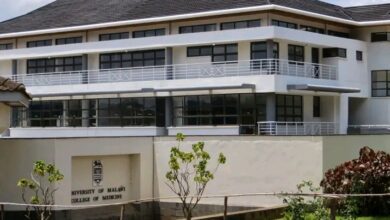Top 10 Colleges of Education in Nigeria for Economics/Yoruba Studies

Nigeria, with its rich cultural heritage and diverse languages, offers a unique opportunity for students interested in studying Economics and Yoruba.
Colleges of Education (COEs) in the country provide a nurturing environment for individuals passionate about these fields.
10 Colleges of Education in Nigeria for Economics/Yoruba Studies
Below, we explore the top 10 COEs in Nigeria that offer exceptional programs in Economics and Yoruba Studies, preparing students for rewarding careers and preserving the nation’s cultural heritage.
1. Adeyemi College of Education, Ondo (ACEONDO)
Adeyemi College of Education, Ondo, stands as a leading institution for Economics and Yoruba Studies. The college’s comprehensive curriculum and experienced faculty members ensure students receive a well-rounded education.
ACEONDO’s commitment to cultural preservation through Yoruba Studies and its emphasis on economic development make it a top choice for prospective students.
2. Federal College of Education, Zaria (FCE Zaria)
FCE Zaria is renowned for its outstanding programs in Economics and Yoruba Studies. The college’s faculty members are experts in their fields, providing students with a deep understanding of economic principles and the Yoruba language.
FCE Zaria’s holistic approach to education equips graduates with the skills to contribute meaningfully to society.
3. Alvan Ikoku College of Education, Owerri (AICOED)
AICOED offers a vibrant learning environment for Economics and Yoruba Studies enthusiasts.
The college’s innovative teaching methods and cultural immersion programs enhance students’ language proficiency and economic knowledge.
AICOED’s graduates are well-prepared to bridge cultural gaps and promote economic growth in diverse communities.
4. Federal College of Education, Kano (FCE Kano)
FCE Kano is a distinguished institution for Economics and Yoruba Studies education. The college’s commitment to promoting linguistic and economic diversity is reflected in its curriculum.
FCE Kano’s graduates play a crucial role in preserving the Yoruba language and advancing economic policies that promote inclusivity and development.
5. Federal College of Education, Osiele (FCE Abeokuta)
FCE Abeokuta is known for its excellence in Economics and Yoruba Studies. The college’s immersive language programs and comprehensive economic courses provide students with a strong foundation.
FCE Abeokuta’s emphasis on cultural appreciation and economic analysis equips graduates to contribute meaningfully to Nigeria’s cultural and economic landscape.
6. Federal College of Education, Okene (FCE Okene)
FCE Okene offers specialized courses in Economics and Yoruba Studies. The college’s faculty members are dedicated educators, fostering a passion for both subjects among students.
FCE Okene’s graduates are equipped with the linguistic and economic knowledge necessary to bridge cultural gaps and facilitate economic progress in diverse communities.
7. Federal College of Education, Eha-Amufu (FCE Eha-Amufu)
FCE Eha-Amufu is a hub for Economics and Yoruba Studies education.
The college’s interdisciplinary approach prepares students for careers in language preservation, cultural heritage, and economic development.
FCE Eha-Amufu’s graduates are advocates for linguistic diversity and play a crucial role in shaping economic policies that promote social inclusion.
8. Federal College of Education, Obudu (FCE Obudu)
FCE Obudu offers a comprehensive education in Economics and Yoruba Studies. The college’s faculty members are passionate about preserving cultural heritage and fostering economic growth.
FCE Obudu’s graduates are well-prepared to contribute to Yoruba language education and economic initiatives that promote sustainable development in Nigeria.
9. Federal College of Education, Kastina (FCE Kastina)
FCE Kastina is a distinguished institution for Economics and Yoruba Studies education.
The college’s student-centered approach and research-driven curriculum prepare graduates for impactful roles in language preservation and economic analysis.
FCE Kastina’s alumni are pioneers in promoting the Yoruba language and implementing economic strategies that empower local communities.
10. Federal College of Education, Pankshin (FCE Pankshin)
FCE Pankshin offers specialized programs in Economics and Yoruba Studies. The college’s commitment to cultural diversity and economic development is evident in its curriculum.
FCE Pankshin’s graduates are equipped with the skills to promote Yoruba language education and drive economic policies that foster social harmony and prosperity.
FAQs
What are the admission requirements for studying Economics/Yoruba Studies at these colleges?
Admission requirements typically include a minimum of five credits in relevant subjects, including Economics and Yoruba, at the Senior Secondary Certificate Examination (SSCE) or its equivalent. Some colleges may also require passing their internal screening or entrance exams. It’s advisable to check each college’s specific requirements as they may vary.
What is the duration of the Economics/Yoruba Studies program at these colleges?
The duration of the Economics/Yoruba Studies program is usually three to four years, depending on the college and whether the student is enrolled in a full-time or part-time program. The length of study may also vary based on the student’s academic progress and any additional requirements or courses.
Are there scholarship opportunities available for students in these programs?
Yes, many of these colleges offer scholarship opportunities based on academic performance, financial need, or specific criteria related to the field of study. Students are encouraged to apply for these scholarships by meeting the eligibility criteria and submitting necessary documentation as outlined by each institution.
What career opportunities are available for graduates of Economics/Yoruba Studies from these colleges?
Graduates of Economics/Yoruba Studies can pursue careers in education, where they may become teachers or lecturers. Other career options include roles in government agencies, non-governmental organizations, and private sector positions related to economics and cultural studies. Additionally, they can engage in research or consultancy roles within their areas of expertise.
Also Read: Top 10 Colleges of Education in Nigeria for Economics/Social Studies





